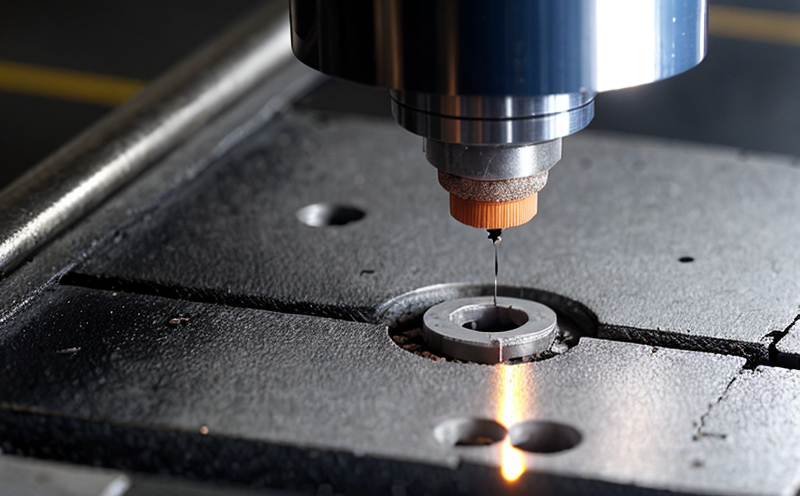JEDDEC JEP122 Failure Analysis Guidelines Testing
The JEDEC JEP122 Failure Analysis Guidelines are a set of industry standards designed to provide comprehensive failure analysis methodologies for semiconductor and microchip products. These guidelines are critical in the semiconductor industry, where reliability is paramount due to the high stakes involved in technology development and production.
The goal of this testing process is to identify defects or failures that occur during the manufacturing process or under end-use conditions. By adhering to these guidelines, laboratories can ensure that they are performing a thorough analysis to determine the root cause of failures. This not only helps manufacturers improve product quality but also enhances overall reliability and customer satisfaction.
The testing protocol outlined in JEP122 is rigorous and covers a wide range of scenarios where failures might occur. It includes detailed procedures for visual inspection, electrical testing, mechanical stress testing, and environmental simulation tests. These steps are essential to identifying potential issues early in the design or manufacturing process before they escalate into larger problems.
One key aspect of JEP122 is its emphasis on reproducibility. The guidelines specify exact conditions under which samples should be tested so that results can be consistently reproduced across different laboratories and test runs. This ensures uniformity in defect detection and characterization, which is crucial for maintaining high standards within the semiconductor industry.
The testing process begins with a detailed examination of the suspected faulty device using optical microscopes or scanning electron microscopes (SEM). These tools allow engineers to visualize surface features at an extremely fine scale. Following this initial inspection, more advanced techniques such as cross-sectioning and trench etching may be employed if further insight into internal structures is needed.
Once physical defects have been identified, additional testing methods like Auger Electron Spectroscopy (AES), Energy Dispersive X-ray Spectroscopy (EDS), or Raman spectroscopy can provide elemental composition information about the material being examined. These analyses help pinpoint specific areas where contamination or other issues may be present.
Electrical characterization plays a vital role in understanding how defects impact performance metrics such as leakage current, capacitance, resistance, and threshold voltage shifts. By measuring these parameters before and after introducing known stressors like heat cycling or humidity exposure, engineers gain valuable insights into the reliability of individual components under real-world operating conditions.
Environmental testing simulates various environmental stresses that devices might encounter during their lifetimes. This includes temperature cycling tests (TCT), humidity stress tests (HST), and bias application tests (BAT). Through these experiments, manufacturers can assess how well their products withstand harsh conditions without compromising functionality or safety.
After completing all necessary tests according to the JEP122 guidelines, detailed reports are generated documenting every step of the analysis process. These reports serve multiple purposes; they inform product designers about areas requiring improvement, guide corrective actions during production processes, and provide evidence for regulatory compliance requirements.
The expertise required to perform this type of testing accurately is extensive, involving knowledge spanning multiple disciplines including physics, chemistry, materials science, electrical engineering, and software development. Our team at [Laboratory Name] comprises highly qualified professionals who possess deep experience in semiconductor manufacturing processes and quality assurance practices.
Industry Applications
- Data Center Servers: Ensuring optimal performance and longevity of server components is crucial for maintaining efficient data centers. By adhering to JEP122 guidelines during testing, manufacturers can identify potential weaknesses early on.
- Automotive Electronics: With increasing reliance on advanced electronics in vehicles today, thorough failure analysis ensures passenger safety by catching defects before they become critical issues.
- Consumer Electronics: From smartphones to gaming consoles, reliability is key when it comes to consumer products. Testing according to JEP122 helps maintain consistent quality across all models.
- Medical Devices: In medical applications, even small defects can have severe consequences. Rigorous testing ensures that devices meet strict safety and efficacy standards.
- Spacecraft Components: Given the extreme environments spacecraft must operate in, robust failure analysis is essential for ensuring mission success and crew safety.
Why Choose This Test
The JEDEC JEP122 Failure Analysis Guidelines Testing offers several advantages that make it an ideal choice for semiconductor manufacturers:
- Precision & Accuracy: By following a standardized set of procedures, the results obtained are highly reliable and repeatable.
- Compliance Assurance: This testing aligns with international standards such as ISO 9001, ensuring adherence to best practices in quality management systems.
- Risk Mitigation: Identifying defects early on prevents costly recalls later down the line and protects brand reputation.
- Improved Efficiency: Streamlined processes lead to faster identification of problem areas, allowing for quicker resolutions.
- Innovation Facilitation: Understanding where failures occur enables continuous improvement efforts aimed at enhancing product features and capabilities.
Our comprehensive approach not only meets but exceeds industry expectations. With our state-of-the-art facilities equipped with cutting-edge technology, we offer precise testing solutions tailored specifically to your needs.
Customer Impact and Satisfaction
By choosing JEDEC JEP122 Failure Analysis Guidelines Testing, customers benefit from:
- Enhanced Reliability: Our rigorous testing processes ensure that only high-quality products reach the market.
- Better Product Design: Insights gained from thorough analysis help design teams make informed decisions leading to more robust designs.
- Improved Customer Trust: Consistent quality and reliability build trust among customers, fostering long-term relationships.
- Increased Market Share: Superior products attract loyal customers who are less likely to switch brands due to dissatisfaction.
We pride ourselves on delivering exceptional service backed by years of experience in the field. Our dedicated staff works closely with clients throughout every stage of the testing process, ensuring smooth communication and timely delivery of results.





